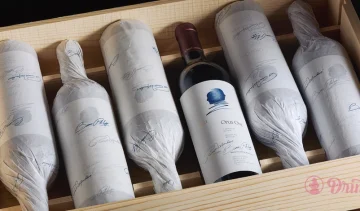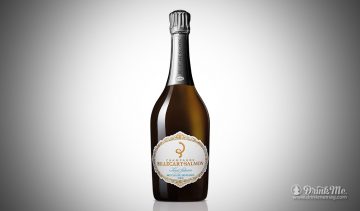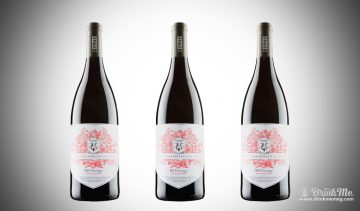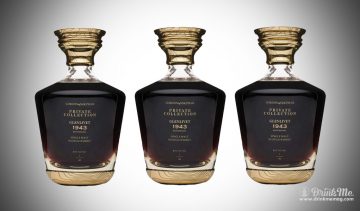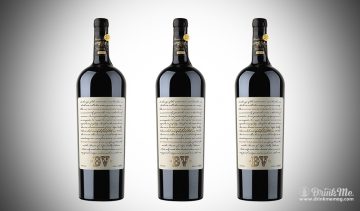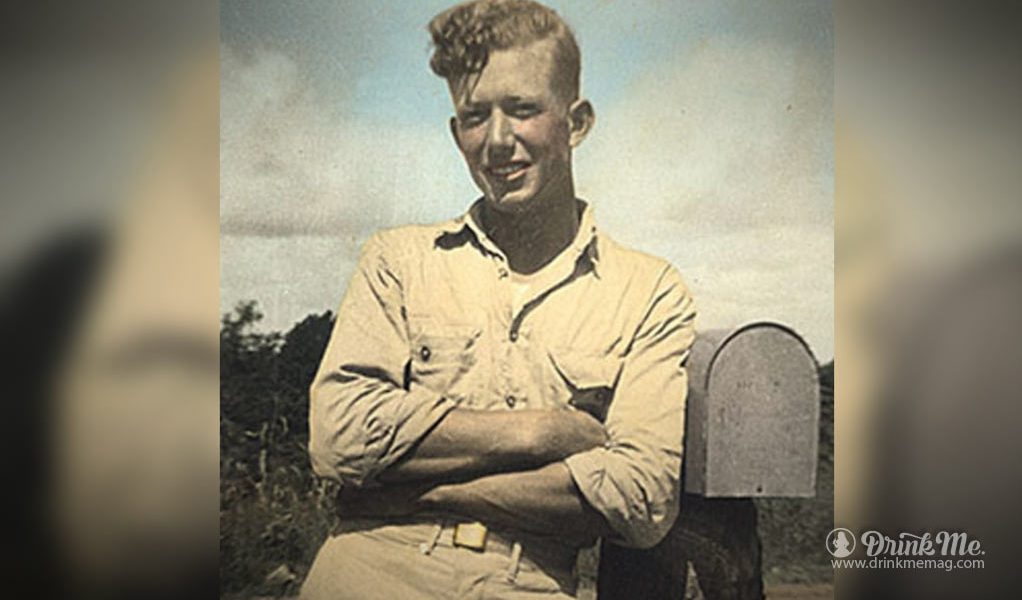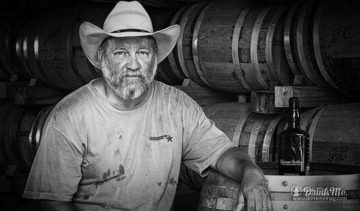In our series, Made in America, we look at various alcohol brands that have become, or are becoming, icons in their category. How relevant is it to be an American brand in any consumer category and what does it matter? We love alcohol products, from all countries and in all shapes, colors and sizes. We enjoy learning about new applications and ways to elevate our readers’ palates. That includes American-made products that offer levels of contribution that imported brands just can’t.

The second profile in our series is Clyde May’s Whiskey. According to the family’s records, Clyde was born to a single mother shortly before the Great Depression, and was raised in a time and place that required a dose of resilience and character — traits that would later become a hallmark of the man and his whiskey.
Clyde May went on to serve proudly in the Army’s 77th Infantry Division during World War II. He earned a Bronze Star and a Purple Heart while commanding a 12-man rifle squad. Clyde’s misfortune of being wounded in battle turned into a pretty good thing for whiskey-loving Conecuh Ridge locals.

After the war, he became a farmer, and raised eight children with his wife, Mary Cynthia.. To supplement his farmer’s income, Clyde started making whiskey. “He worked from sun up to sun down as a farmer to provide for his wife and eight children,” says L.C. May, Clyde’s grandson, and National Brand Ambassador at Conecuh* Brands-Clyde May’s Whiskey. “He poured his heart and soul into making a whiskey to help provide a more comfortable life for his family. His whiskey was the best because he believed his reputation was attached to every batch he sold and his word was his bond. For lack of a better phrase, Clyde May gave a damn. It may have not been the most orthodox way, but Clyde definitely lived his life the American Way.”

“For lack of a better phrase, Clyde May gave a damn. It may have not been the most orthodox way, but Clyde definitely lived his life the American Way.” — L.C. May.
Clyde knew how to make great moonshine. His high standards and commitment to quality cemented his reputation as the ‘most-wanted’ moonshiner in Alabama, if not the country. And because of his handiwork, he spent eight months in the federal penitentiary at Maxwell Air Force Base in Montgomery, Alabama, before he was paroled. Soon after his release — in true Clyde May form — he started setting up his next still.

“In the late 1990s, my uncle, Kenny May, began researching and figuring out what he needed to do to create a legal whiskey brand in the state of Alabama honoring his father. In 2001, Clyde May’s Conecuh Ridge Whiskey hit shelves in Alabama,’ explains L.C.
“Kenny wanted to continue his father’s legacy by selling Clyde’s Christmas Whiskey recipe. This was essentially Clyde’s everyday moonshine whiskey that he would take and age in a charred oak barrel, then sell to his best customers around Christmas time. The practice of a moonshiner aging moonshine was unheard of it because you were essentially sitting on something that could be used as evidence against you if you were ever caught. Clyde’s dedication to his craft was something that Kenny wanted the world to know.”
Clyde May’s brand appears to have the same goal today as it did all those years ago: Continue Clyde’s legacy of hard work, dedication, and love for making a whiskey unlike any other.
“I believe people can resonate with this brand because complacency is far too common in today’s world, and people like hearing and learning about a man who put everything he had into everything he did,” says L.C. “It’s also unique and different because of our Original Alabama Style products. The term, Alabama Style, means that just a subtle hint of apple is added at the very end of the aging process to help make the product smoother. This process isn’t for flavor, it’s for the finish. This process was made famous by Clyde May.”
American-made means heart and soul to the Clyde May’s brand. “Why consumers tend to gravitate towards American made products is kind of subjective, but, in my opinion, it’s all about taking pride in your country. I’m a firm believer in the phrase, ‘Home is where the heart is’, and knowing something is an American made product just provides a sense of comfort,” L.C. concludes.
*The word “Conecuh” is pronounced cuh-neh-cuh.
CLYDE MAY’S ALABAMA WHISKEY $35
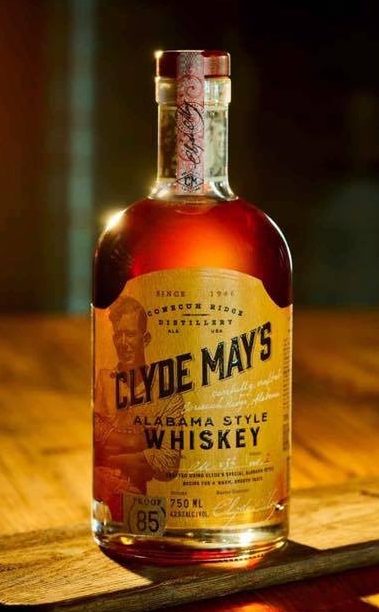
Flavor Profile
Appearance: Deep, glimmering bronze.
Nose: Distinct aromatics of rich caramel, dried orchard fruits and green apple.
Palate: Warm, medium-bodied spirit with accent of black pepper and hints of anise and toasted oak. Crowned by a smooth finish.
85% proof.
CLYDE MAY’S STRAIGHT RYE WHISKEY $48
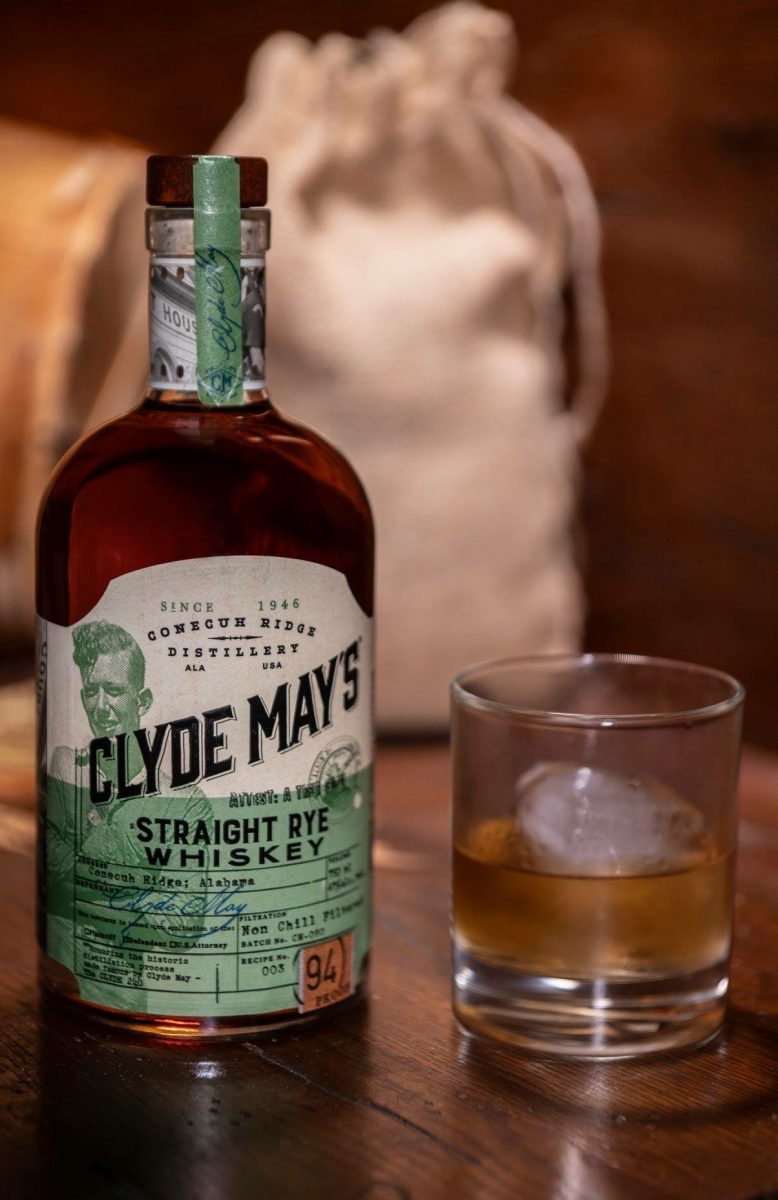
Flavor Profile
Appearance: Aged Sienna.
Nose: Floral notes, honeysuckle, apricot, oiled leather, anise, and vanilla wafers.
Palate: Spice, citrus off the first taste followed by cinnamon bark, shortbread.
94% proof.
CLYDE MAY’S STRAIGHT BOURBON $40
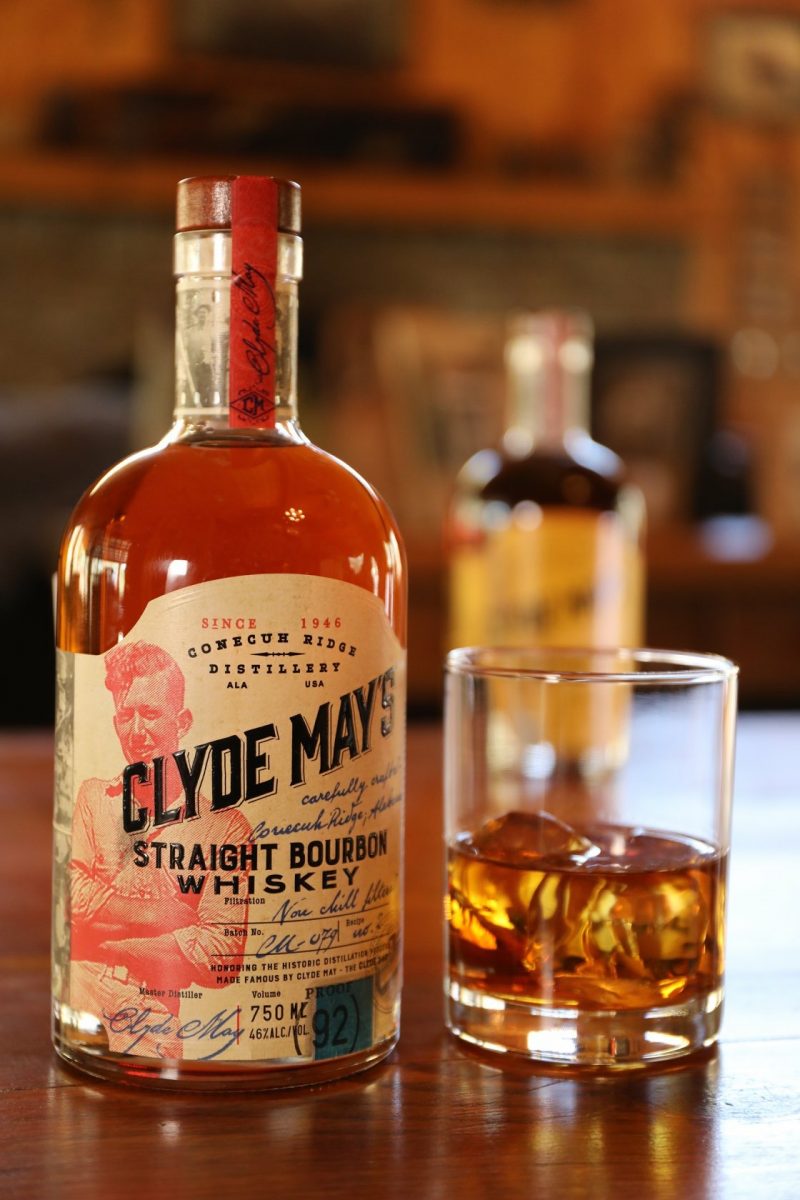
Flavor Profile
Appearance: Rich crimson.
Nose: Soft and sweet on the nose with aromas of brown sugar, baked apricot, wild strawberry, and nutmeg.
Palate: Wonderfully soft with complex aromas of barrel spice, fruit, and oiled leather. Finishes long and delicious.
92% proof.
CLYDE MAY’S ALABAMA STYLE WHISKEY SPECIAL RESERVE $60
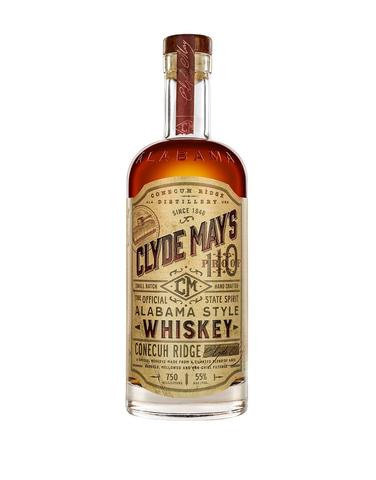
Flavor Profile
Appearance: Rich, vibrant burgundy.
Nose: The generous aromatics are loaded with sweet candied apple, toffee, butterscotch, nutmeg and cinnamon.
Palate: Harmonious and seamless, it finishes with a complex baking spice accent, hints of clove and toasted oak. Full-bodied and totally hedonistic offering rich and ripe flavors.
96% proof.
CLYDE MAY’S CASK STRENGTH $100
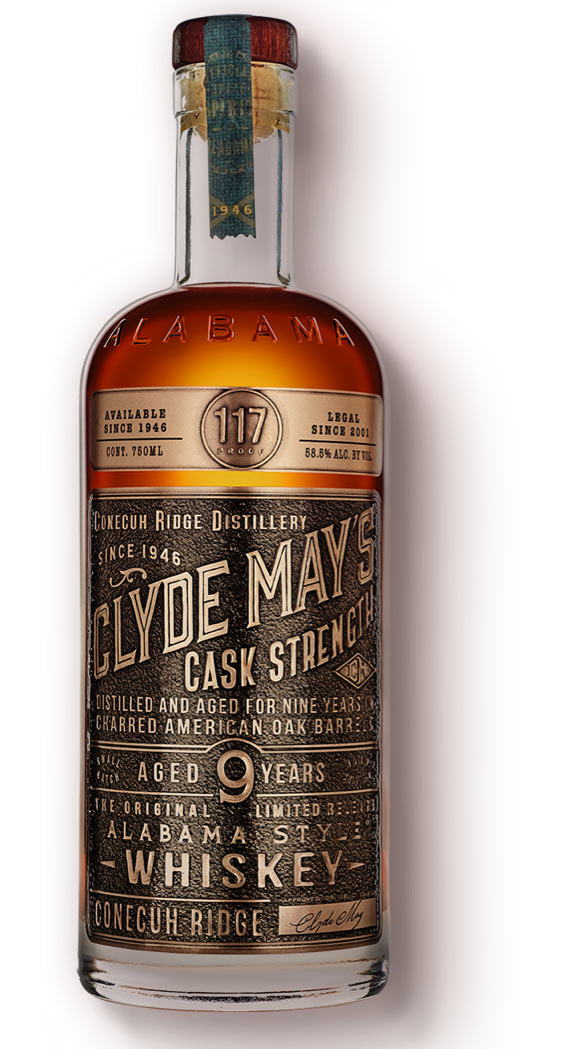
Flavor Profile
Appearance: Antique scarlet.
Nose: Rich, accent of toasted cedar, hint of peach.
Palate: A bright open of vanilla and molasses, cedar and hazelnut notes with just a hint of baking spice and oak.
117% proof.
“Why consumers tend to gravitate towards American made products is kind of subjective, but, in my opinion, it’s all about taking pride in your country. I’m a firm believer in the phrase “home is where the heart is” and knowing something is an American made product just provides a sense of comfort.” — L.C. May.


